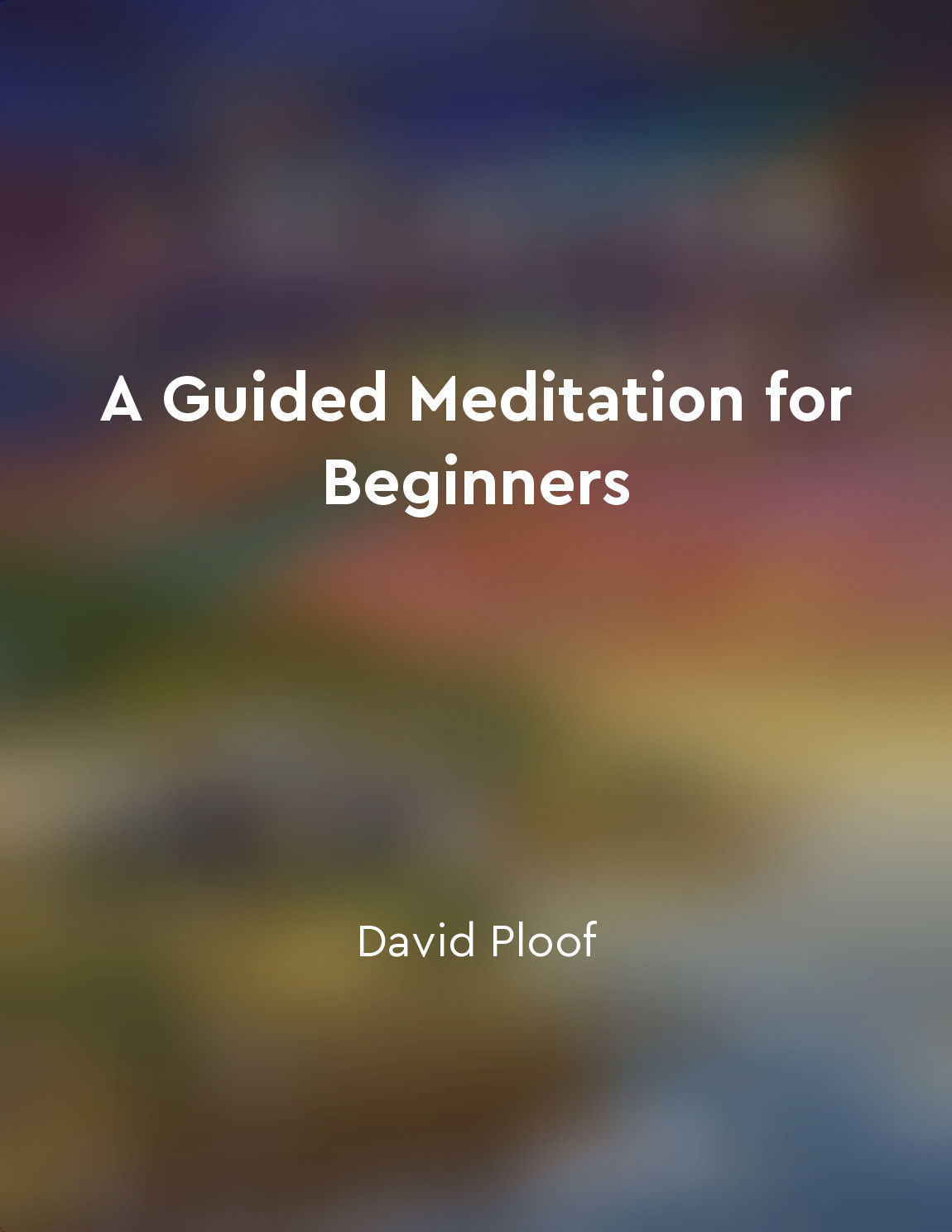Western psychology aligns with Buddhist teachings from "summary" of Why Buddhism is True by Robert Wright
Many aspects of the human mind that Buddhist meditation was designed to address are the same aspects of the human mind that evolutionary psychology has helped us understand. As we saw in previous chapters, natural selection designed us to pursue certain things - food, sex, status - that would have enhanced the survival and reproduction of our genes in the ancestral environment. Our minds were designed not for happiness, but for survival and reproduction. Consequently, we are constantly driven to seek things that we think will make us happy - money, power, status, love - but which in the end don't bring the lasting satisfaction we crave. This is where Buddhist meditation comes in. By systematically observing the workings of our mind, we can come to see these deep-seated impulses for what they are: strategies that evolution has programmed into us in order to get its way. This doesn't mean that we should abandon all desires and live as ascetics. Rather, it means that by understanding the true nature of our desires, we can begin to relate to them in a healthier, more balanced way. We can see them for what they are, and as a result, we can free ourselves from being so completely in their thrall. In essence, Western psychology and Buddhist teachings both recognize that our minds have a tendency to generate suffering and that our perceptions of reality are often distorted. Western psychology has developed various techniques, such as cognitive-behavioral therapy, to help people identify and correct these distortions. Similarly, Buddhist meditation practices help individuals become more aware of their thought patterns and emotional reactions, allowing them to see things more clearly and reduce suffering. Both Western psychology and Buddhist teachings emphasize the importance of mindfulness - the ability to be present in the moment without judgment. Mindfulness allows us to observe our thoughts and feelings without getting caught up in them, leading to greater emotional regulation and mental well-being. By cultivating mindfulness through practices like meditation, we can learn to respond to life's challenges with greater clarity and equanimity.- The convergence of Western psychology and Buddhist teachings highlights the universal truths about human nature and the human mind. By integrating the insights from both traditions, we can develop a more comprehensive understanding of ourselves and cultivate greater well-being and happiness in our lives.
Similar Posts

Cessation of suffering is attainable through Nirvana
The Buddha taught that the ultimate goal of life is to attain Nirvana, which is the cessation of suffering. He believed that su...
Nirvana is the ultimate goal of spiritual practice
The idea of Nirvana as the ultimate aspiration of spiritual practice is central to Buddhism. It is the state of perfect peace, ...
Your subconscious is always listening
Your subconscious mind is like a faithful servant, always ready to listen and carry out your commands. It doesn't question or d...
The concept of oneness
The concept of oneness is a central teaching in the Bhagavad Gita, emphasizing the interconnectedness of all beings and the uni...
Your mind is a powerful magnet for miracles
Your mind is a powerful magnet for miracles. Your subconscious mind can be likened to a powerful magnet, drawing to you all the...
Applying mindfulness in daily life
The practice of mindfulness involves being fully present and engaged in each moment, paying attention to thoughts, feelings, an...

Focusing on the breath
Focusing on the breath is a fundamental aspect of meditation practice. By bringing our attention to the breath, we are able to ...
Enlightenment is achievable through mindfulness
The idea that enlightenment is achievable through mindfulness is central to Buddhism. Mindfulness involves paying attention to ...
Harness the power of quantum physics
To truly understand the concept of harnessing the power of quantum physics, we must first recognize the fundamental principles ...
Let go of ego to experience oneness with the universe
The path to experiencing oneness with the universe is through letting go of the ego. Ego is the sense of self that separates us...

